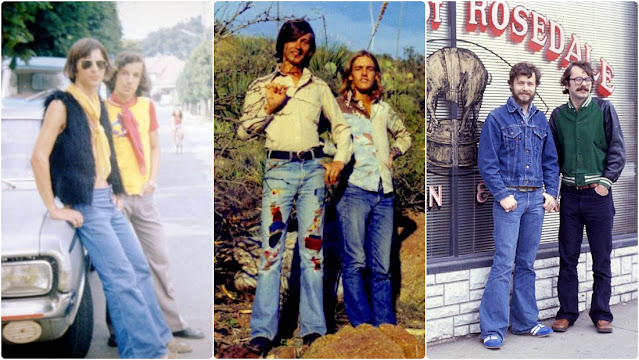"The Waltons," a beloved American television series that aired from 1972 to 1981, is an enduring testament to the power of family, community, and resilience in the face of adversity. Created by Earl Hamner Jr., the series is set in rural Virginia during the Great Depression and World War II eras, providing viewers with a glimpse into a bygone era where life was simple, yet the challenges were profound. Over the course of its nine-season run, "The Waltons" captivated audiences with its touching portrayal of the eponymous family's struggles and triumphs. This article explores the enduring appeal of the show, its cultural impact, and the memorable characters that have etched themselves into the hearts of viewers.

The Setting and Premise

"The Waltons" is set in the fictional town of Walton's Mountain, Virginia, a picturesque locale surrounded by the Blue Ridge Mountains. The series centers around the lives of the Walton family, led by John Walton Sr. (Ralph Waite) and his wife Olivia (Michael Learned). Together, they raise a large family of seven children in the midst of the Great Depression. The show begins in the 1930s and later transitions to the wartime 1940s, providing a unique lens through which to examine the profound social and economic changes that occurred during these turbulent decades.
The Characters

Central to the show's charm are its well-developed characters, each with their unique personalities and struggles. The Walton family includes John-Boy (Richard Thomas), the eldest son and aspiring writer; Mary Ellen (Judy Norton Taylor), the studious daughter; Jim-Bob (David W. Harper), the adventurous young boy; Erin (Mary Elizabeth McDonough), a budding feminist; Jason (Jon Walmsley), the musical talent of the family; Ben (Eric Scott), who dreams of becoming a doctor; and Elizabeth (Kami Cotler), the youngest and most innocent member of the clan.
The parents, John and Olivia Walton, offer viewers a profound portrayal of strong, loving, and principled individuals who instill their values in their children. Other recurring characters, such as Grandpa Zebulon Walton (Will Geer), Grandma Esther Walton (Ellen Corby), and the enigmatic "The Baldwin Sisters" (Helen Kleeb and Mary Jackson), add depth and humor to the show.
The Themes and Values
"The Waltons" is built on a foundation of strong values, such as family, community, hard work, and self-reliance. The show explores these themes in depth, often through the lens of the Great Depression, a time when families across America were grappling with economic hardship. In the face of adversity, the Waltons provide a powerful example of resilience and unity. They demonstrate how love and mutual support can carry a family through even the most challenging of times.
The show also addresses the timeless issues of growing up, pursuing one's dreams, and finding one's place in the world. John-Boy's journey from a young writer to a man of the world is a central narrative arc, reflecting the aspirations and struggles of many young people.
The Impact on American Culture

"The Waltons" had a significant impact on American culture, resonating with viewers across the country. It offered a nostalgic look back at a simpler time, striking a chord with audiences who longed for a return to traditional values. The show served as a comforting contrast to the tumultuous events of the late 20th century, including the Vietnam War and social unrest.
One of the most iconic aspects of the show is the signature goodnight sequence, where family members wish each other goodnight in their shared bedroom, concluding with the phrase, "Goodnight, John-Boy." This ritual became a cultural touchstone, often referenced and parodied in other forms of media.
Critique and Awards

"The Waltons" received critical acclaim throughout its run and was showered with awards. The series won several Emmys, including Outstanding Drama Series, and earned the admiration of both critics and audiences for its heartfelt storytelling and strong character development. The show's ability to tackle serious social and emotional issues while maintaining a sense of warmth and optimism was particularly praised.
Legacy and Endurance

Even after its original run, "The Waltons" remains a beloved part of American television history. The enduring appeal of the show is evident in the numerous reunions and revival projects, including TV movies and documentaries. The Walton family's story continues to captivate new generations, cementing its status as a timeless classic.
Cast Reunions and Revivals
The enduring appeal of "The Waltons" is perhaps best exemplified by the various cast reunions and revival projects. The actors who portrayed the Walton family and their neighbors have periodically reunited over the years for special events, interviews, and retrospectives.
Additionally, the show was revisited in the form of several television movies. These movies, often set during important historical events like World War II and the Vietnam War, provided fans with the opportunity to catch up with the characters they had grown to love. The most notable of these movies was "A Walton Wedding," which aired in 1995.
The continued interest in the world of the Waltons culminated in a proposed revival of the series, which garnered significant attention and excitement from fans. In the early 2000s, creator Earl Hamner Jr. and Warner Bros. Television explored the possibility of bringing back the show with a new generation of actors while retaining some of the original cast members. Though the project faced numerous challenges and delays, it highlighted the enduring fascination with the Waltons and the potential for a timeless revival.
Cultural Significance and Relevance

"The Waltons" endures as a cultural touchstone for a variety of reasons. Its portrayal of a close-knit family facing economic hardships in a simpler time continues to resonate with viewers, reminding them of the importance of family and community. The themes of resilience, perseverance, and the pursuit of one's dreams remain universal and timeless, making the show relevant even decades after its original airing.
In a world that often seems fast-paced and disconnected, "The Waltons" offers a comforting reminder of the power of human connection. The show encourages viewers to cherish family and friends, work hard, and hold onto their values, even in the face of adversity. It's a message that transcends time and continues to inspire and comfort audiences of all ages.
The Waltons' Influence on Subsequent Television

"The Waltons" had a significant influence on subsequent television programming. The series paved the way for a new generation of family-oriented shows that explored the dynamics and challenges of American households. It introduced the idea that television could be used not only for entertainment but also as a platform to explore deeper themes and values.
"The Waltons" was followed by other successful family-oriented series like "Little House on the Prairie," "The Dukes of Hazzard," and "The Brady Bunch," which also explored family values and relationships. These shows continued to uphold the principles of strong family bonds, community support, and life lessons.
Conclusion
"The Waltons" remains a cherished and timeless series, illustrating the enduring importance of family, community, and resilience. Its heartwarming portrayal of the Walton family's journey during the Great Depression continues to resonate with audiences, offering valuable life lessons and a nostalgic escape to a simpler, more connected world.



